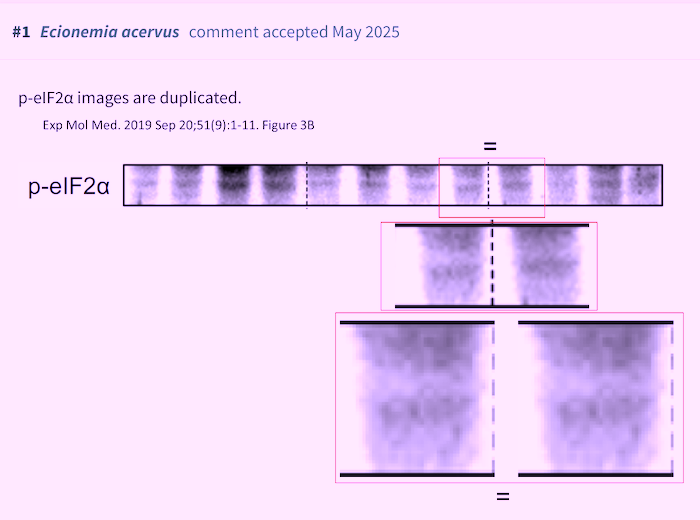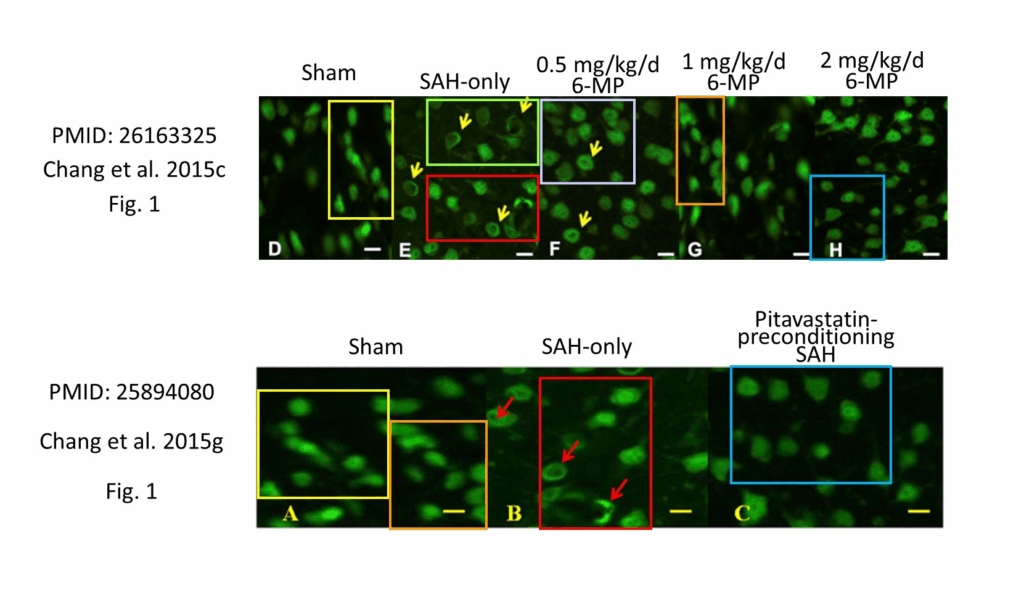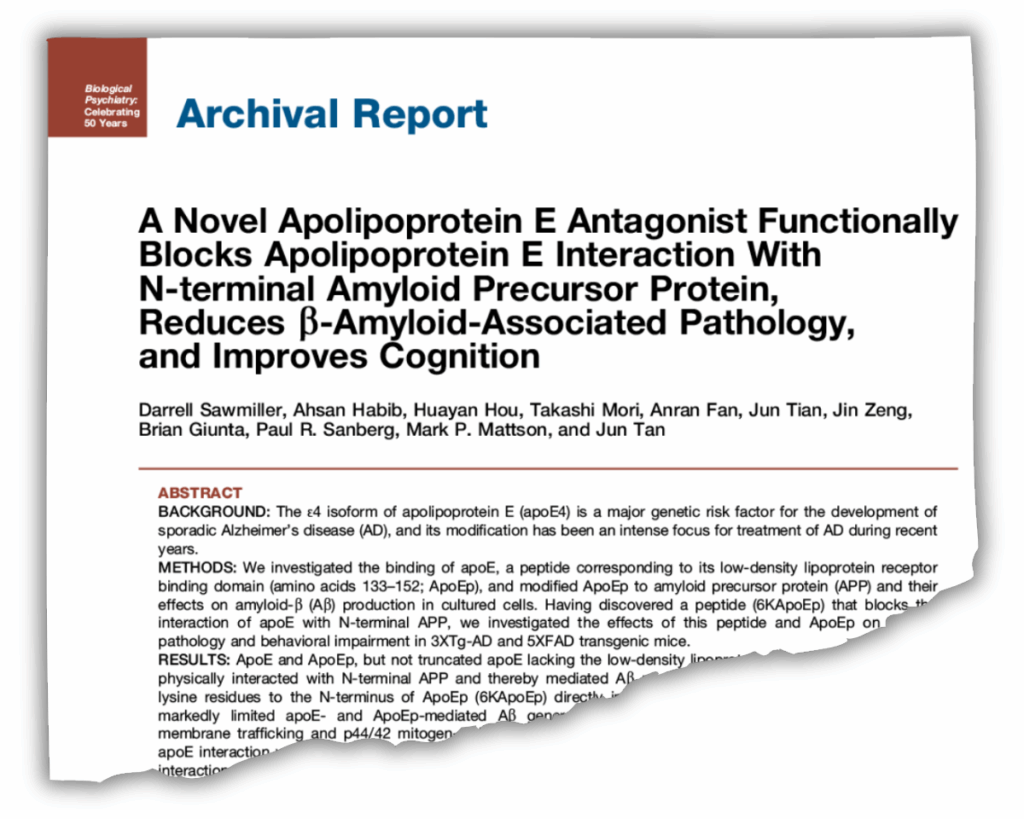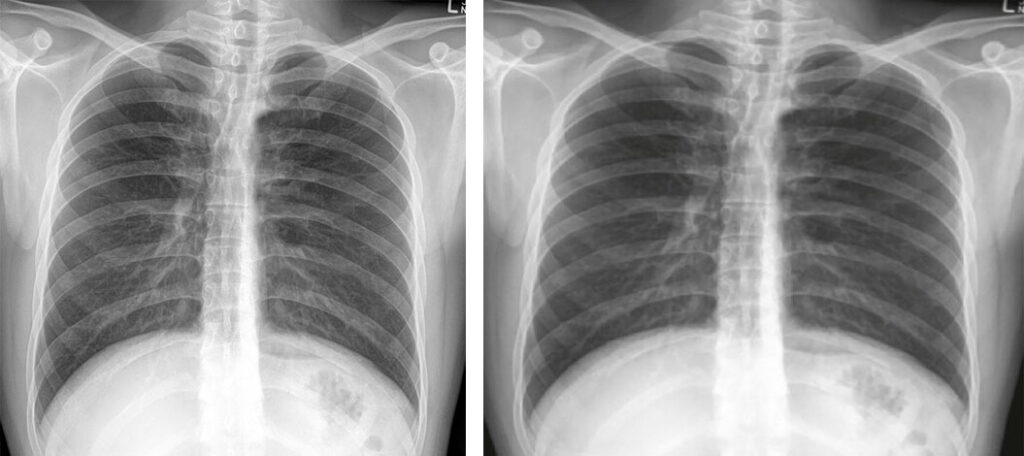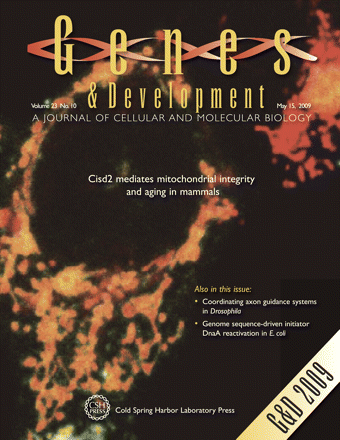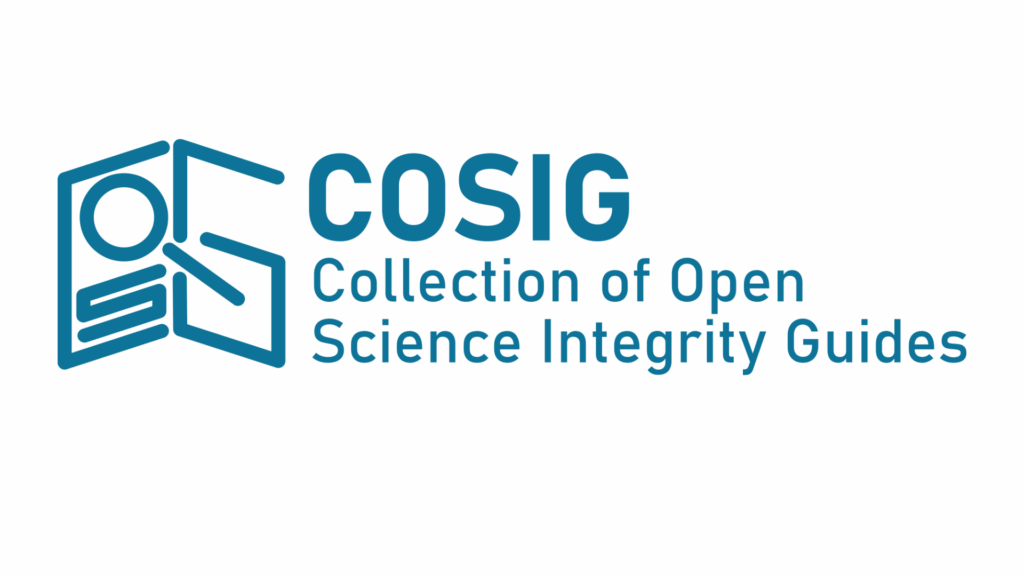Mike Rossner had never seen anything like it. At first, the anonymous comment on PubPeer, which claimed a lane of a western blot in a research paper had been duplicated, seemed nothing out of the ordinary to Rossner, who specializes in detecting image manipulation in biomedical research. The surprise came when he looked closer at the magnified images the commenter had provided to support their allegation.
While the two enlarged lanes in the anonymous comment were indeed identical to each other, close inspection of the original image from the paper, which the comment included, clearly showed two different lanes. It wasn’t hard to see how the fakery had been achieved: A single lane had been copied and pasted on top of an adjacent lane.
“I have looked at thousands of PubPeer allegations, and this is the first time I have come across what appear to be fabricated allegations,” Rossner told us.
Continue reading Fabricated allegations of image manipulation baffle expert